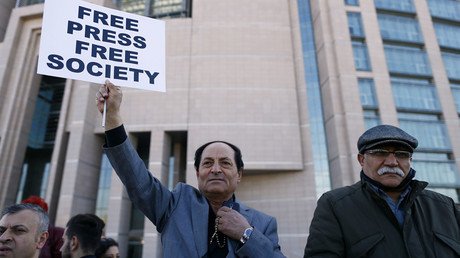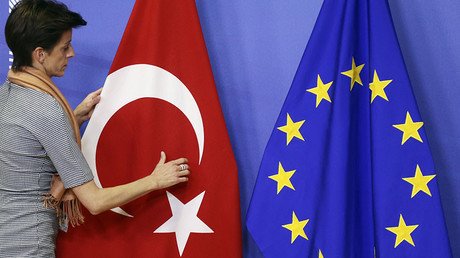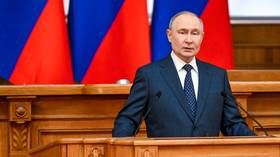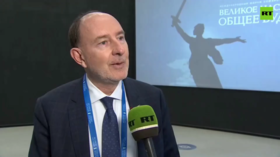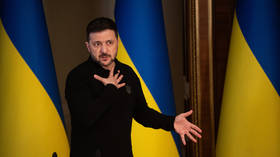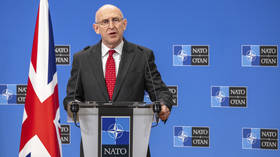PM Davutoglu to step down amid ‘rift’ with power-hungry Erdogan – reports
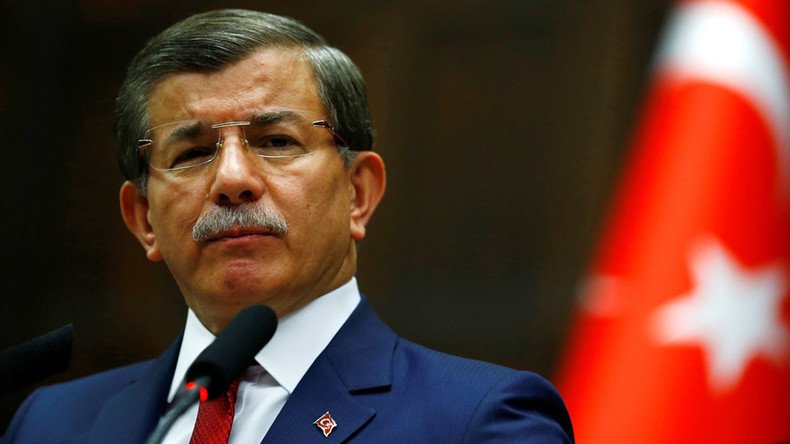
Ahmet Davutoglu, Turkey’s prime minister and head of the ruling AK party, may soon be replaced, reports claim, following his meeting with President Recep Tayyip Erdogan. Credited with successful foreign policy deals, Davutoglu is thought to have crossed Erdogan’s authoritarian ambitions.
Davutoglu will reportedly hold a press conference Thursday which will follow a meeting of the Justice and Development Party’s (AKP) executive committee, which is expected to set a date for an extraordinary congress convened to select a new party head replacing Davutoglu, local media cited by Reuters report. Only the party leader can be in charge of the government, according to AKP party regulations.
The reports on the PM’s resignation emerged following a lengthy 90-minute meeting between Erdogan and Davutoglu on Wednesday. Although no statement was issued as to the subject of the meeting, Davutoglu’s political future was likely top of the agenda.
“There was a lot of hope during the day that the PM would be able to resolve the situation with respect toward the president,” a source close to Davutoglu told the Financial Times, commenting on the rumor of his departure as PM.
The tensions between Turkey’s top two officials have been mounting for months and speculation about the PM’s possible resignation started swirling last week after the AKP removed Davutoglu’s powers to appoint regional party leaders, a move viewed as a blow to his influence in the party. On Tuesday, Davutoglu hinted he might not be in charge of the government for much longer, saying he was ready “to walk away from any job position,” Hurriyet Daily News reported.
The next day, Erdogan made sharp remarks during a meeting with district officials, seemingly referring to Davutoglu as he said: “Posts are a means to serve the people. Your hearts and minds should work to serve the nation regardless of whether you’re a muhtar [district official], a mayor, an MP, a minister, a prime minister or a president.”
Some commentators argue the cause of the row may lie in the Turkish president’s persistent push for more authority and his support for a transition to a presidential republic, which will enable him to amass greater power while restricting the PM’s authority. The two are also believed to disagree over domestic policy issues such as the treatment of academics and journalists charged with spreading “terrorist propaganda.”
"It shows how much power has been amassed in one person's hands," AFP reported Soner Cagaptay, director of the Turkish Research Program at The Washington Institute, as saying, commenting on Erdogan’s alleged penchant for authoritarian rule.
Sacking the PM would also "allow Erdogan to distance himself from some of his failed policies that can be attributed to Davutoglu," Cagaptay added.
Erdogan’s unfolding conflict with Davutoglu may also be the Turkish president’s reaction to the PM’s recent success in dealings with the EU.
“Mr Davugtolu has been Angela Merkel’s and Europe’s key interlocutor and a large part of the reason a framework for managing refugee flows has been established,” Rahman Mujtaba, an analyst at the Eurasia Group, told the FT.
The Turkish PM has been credited with finalizing a key EU-Turkey migration deal and moving closer to the EU membership, with the European Commission recently giving a green light to the visa-free travel regime between Turkey and the EU.
Davutoglu has served as Turkey’s PM since August 2014, being propelled into the post of party leader by Erdogan, who could no longer be the party’s chief as he was elected president and was supposed to be non-partisan.
Before his appointment, Davutoglu served as foreign minister under then-PM Erdogan’s government from 2009 to 2014.
